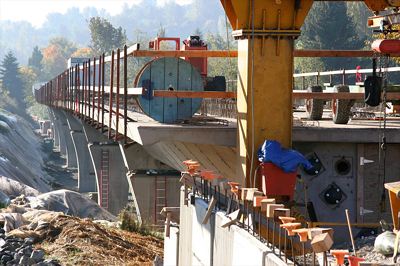Rail transit is a waste of money, and what little benefit it provides in the form of congestion relief is far exceeded by its cost. That is the Antiplanner’s general opinion, and it is shared by economists Clifford Winston, of the Brookings Institution, and Vikram Maheshri, of UC Berkeley.
The two have written a paper, On the Social Desirability of Urban Rail Transit Systems, that has been circulating around the Internet for awhile (and was previously mentioned by the Antiplanner). Now it is being published in the Journal of Urban Economics.

At $170 million, the cost of building each mile of Seattle’s new light-rail line is enough to construct four miles of a four-lane freeway. If Seattle is lucky, its light rail will carry 30 percent of a single freeway lane; the national average is just 25 percent.
Flickr photo by brewbooks.
Winston and Maheshri examine 25 light- and heavy-rail systems in the U.S. and find that, with the exception of the San Francisco BART system, “every system actually reduces welfare and is unable to become socially desirable even with optimal pricing or physical restructuring of its network” (emphasis in original).







